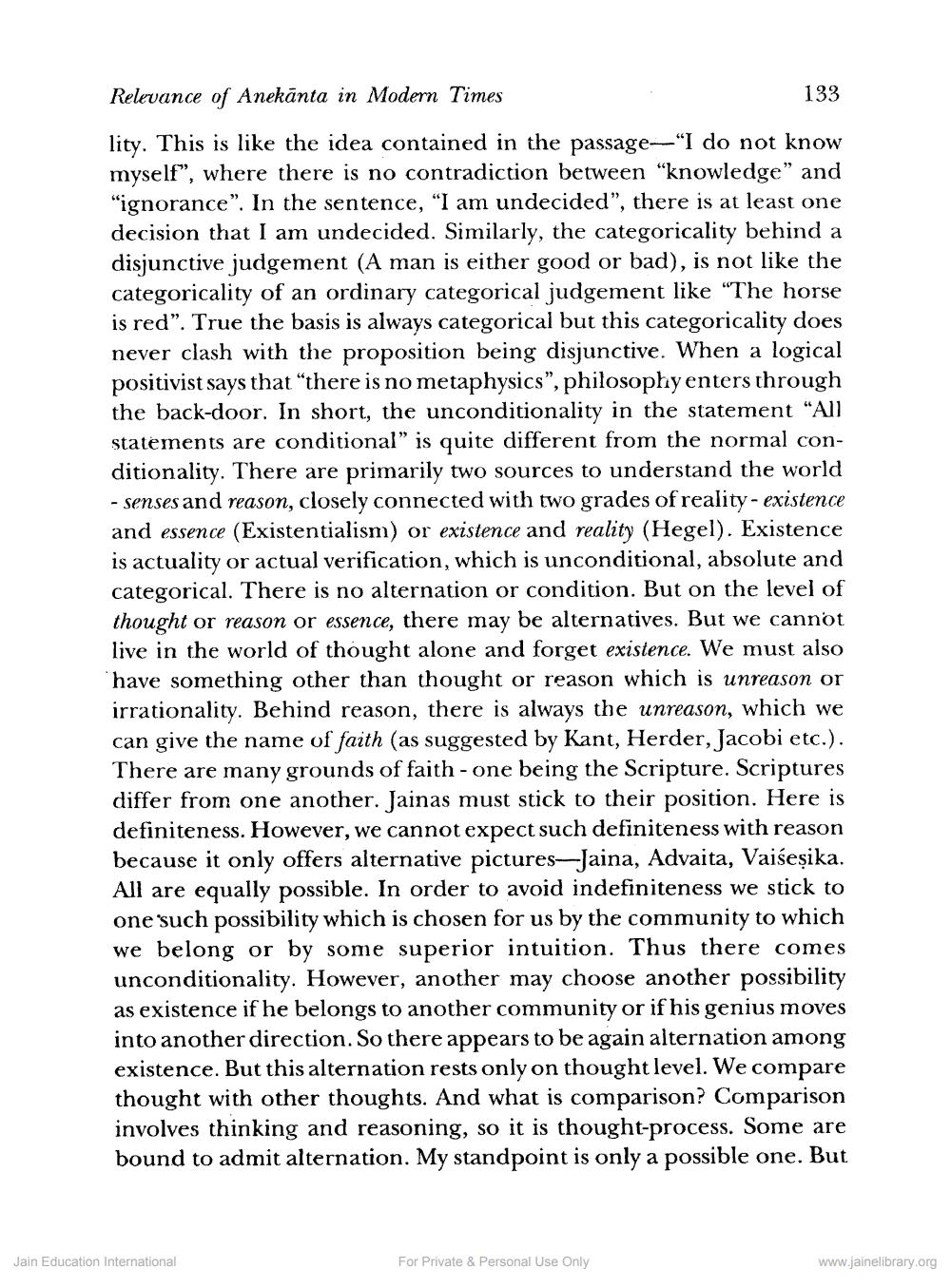________________
Relevance of Anekānta in Modern Times
133
lity. This is like the idea contained in the passage--"I do not know myself”, where there is no contradiction between "knowledge” and "ignorance”. In the sentence, “I am undecided", there is at least one decision that I am undecided. Similarly, the categoricality behind a disjunctive judgement (A man is either good or bad), is not like the categoricality of an ordinary categorical judgement like "The horse is red". True the basis is always categorical but this categoricality does never clash with the proposition being disjunctive. When a logical positivist says that "there is no metaphysics”, philosophy enters through the back-door. In short, the unconditionality in the statement “All statements are conditional” is quite different from the normal conditionality. There are primarily two sources to understand the world - senses and reason, closely connected with two grades of reality - existence and essence (Existentialism) or existence and reality (Hegel). Existence is actuality or actual verification, which is unconditional, absolute and categorical. There is no alternation or condition. But on the level of thought or reason or essence, there may be alternatives. But we cannot live in the world of thought alone and forget existence. We must also have something other than thought or reason which is unreason or irrationality. Behind reason, there is always the unreason, which we can give the name of faith (as suggested by Kant, Herder, Jacobi etc.). There are many grounds of faith - one being the Scripture. Scriptures differ from one another. Jainas must stick to their position. Here is definiteness. However, we cannot expect such definiteness with reason because it only offers alternative pictures—Jaina, Advaita, Vaišeșika. All are equally possible. In order to avoid indefiniteness we stick to one'such possibility which is chosen for us by the community to which we belong or by some superior intuition. Thus there comes unconditionality. However, another may choose another possibility as existence if he belongs to another community or if his genius moves into another direction. So there appears to be again alternation among existence. But this alternation rests only on thought level. We compare thought with other thoughts. And what is comparison? Comparison involves thinking and reasoning, so it is thought-process. Some are bound to admit alternation. My standpoint is only a possible one. But
Jain Education International
For Private & Personal Use Only
www.jainelibrary.org




